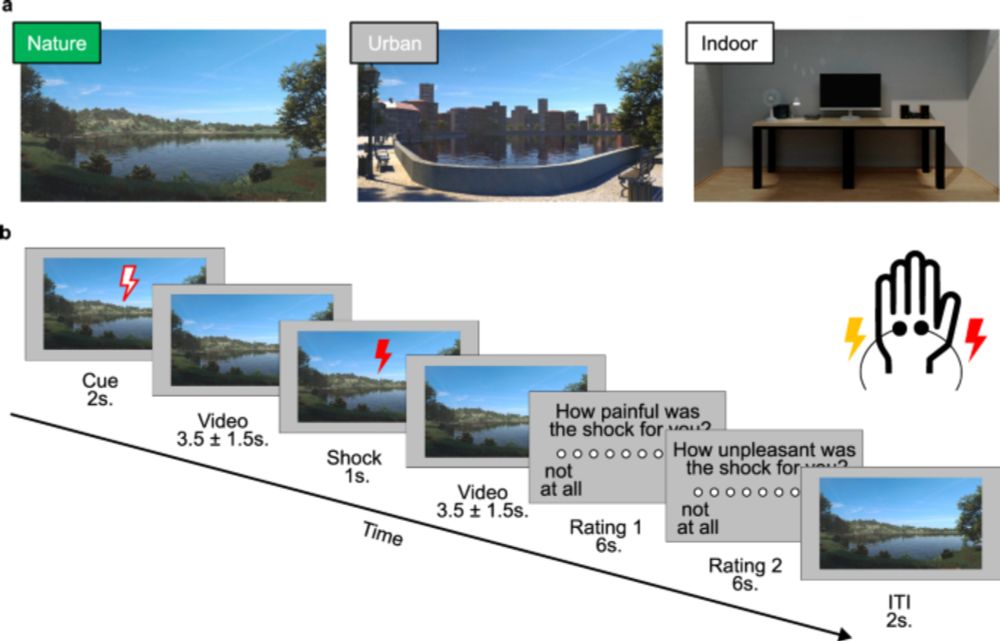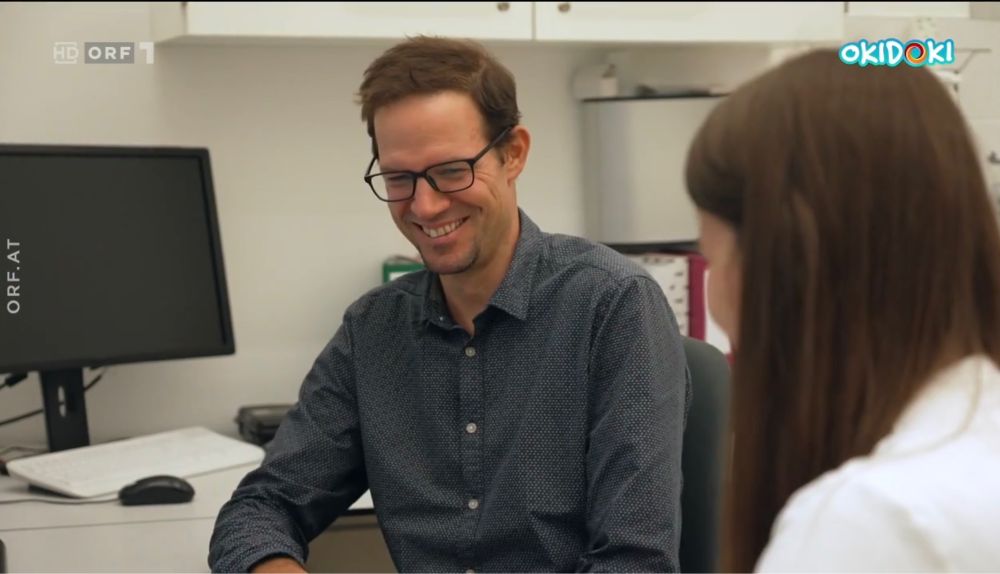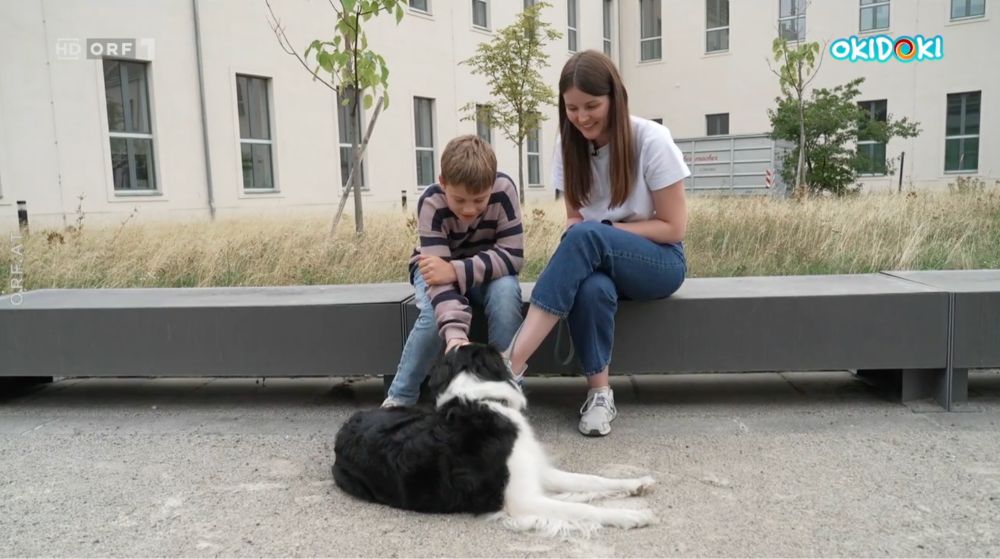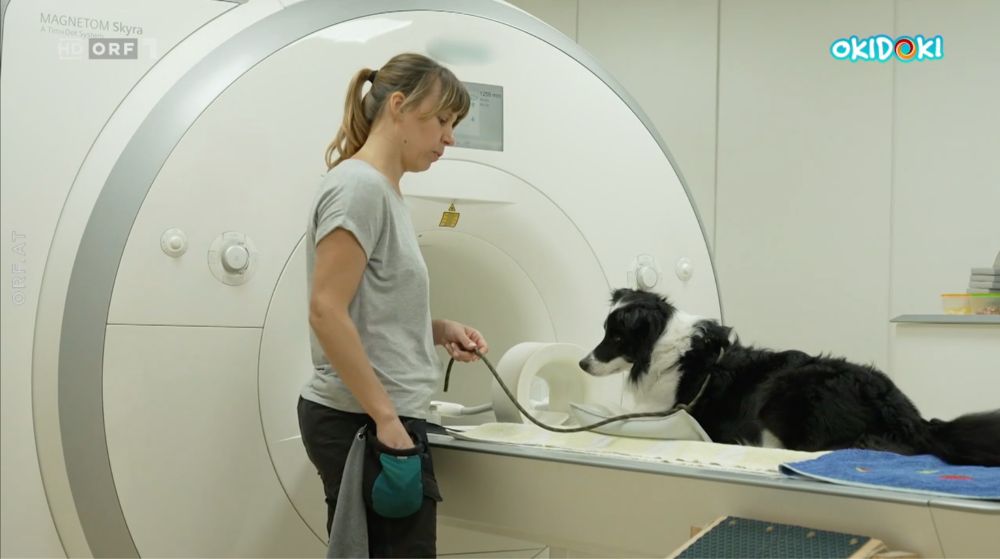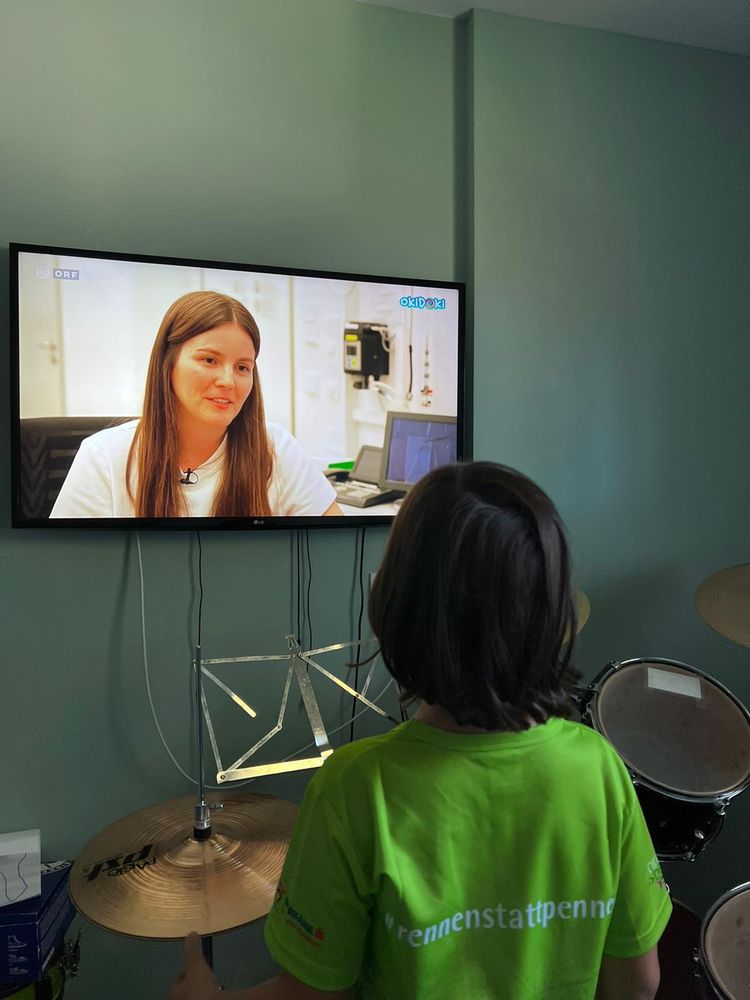Apply now: 1 Postdoc + 1 PhD position, Anderson-Wagner group @univie.ac.at Focus: gut microbial effects on hippocampus & memory 🧠🦠
#PostdocJobs #Microbiome #AcademicJobs #PhDposition
Postdoc Ad: careers.univie.ac.at/en/postdoc/e... > Psychology
PhD Ad: careers.univie.ac.at/en/praedoc/p... > CoBeNe
08.01.2026 06:08 — 👍 21 🔁 13 💬 2 📌 0

Nature exposure reduces self-reported pain: a systematic review and meta-analysis - Nature Mental Health
The authors conducted a systematic review and meta-analysis of 62 studies, including more than 4,400 participants across 21 countries, to investigate the effects of nature exposure on self-reported pa...
Our preregistered systematic review & meta-analysis published in Nature Mental Health shows that nature exposure is linked to small-to-moderate reductions in self-reported pain (SMD = .53; N = 4,439). But high heterogeneity and moderate-to-high risk of bias call for a cautious interpretation (1/5)
06.01.2026 10:17 — 👍 12 🔁 8 💬 1 📌 1
Nature exposure may be a promising adjunct non-pharmacological pain treatment strategy, but more work is needed. Big thanks to @jonasnitschke.bsky.social, @clauslamm.bsky.social, Mat White, the reviewers/editors at Nature Mental Health, and @fwf-at.bsky.social for making this project possible (5/5)
06.01.2026 10:17 — 👍 2 🔁 1 💬 0 📌 0
Sensitivity analyses suggest the effect is robust and exceeds a minimally important difference (~1 point on a 0-10 scale). However, more rigorous studies are needed to clarify generalizability, uncover underlying mechanisms, and identify if the effect translates from acute to chronic pain (4/5)
06.01.2026 10:17 — 👍 1 🔁 0 💬 1 📌 0
Overall, nature exposure reduced pain, but effects varied widely. Two moderators stood out: comparator quality (matched comparators showed smaller effects) and immersiveness (multisensory nature tended to produce stronger effects). Most other moderators were not significant (3/5)
06.01.2026 10:17 — 👍 1 🔁 0 💬 1 📌 0
Across 62 studies (96 effects) from 21 countries, mostly focusing on acute pain, we found a wide variation in nature exposures, from simple unimodal stimuli to immersive VR (few in situ). Comparator conditions also varied, predominantly using no-stimulation or treatment-as-usual controls (2/5)
06.01.2026 10:17 — 👍 1 🔁 0 💬 1 📌 0

Nature exposure reduces self-reported pain: a systematic review and meta-analysis - Nature Mental Health
The authors conducted a systematic review and meta-analysis of 62 studies, including more than 4,400 participants across 21 countries, to investigate the effects of nature exposure on self-reported pa...
Our preregistered systematic review & meta-analysis published in Nature Mental Health shows that nature exposure is linked to small-to-moderate reductions in self-reported pain (SMD = .53; N = 4,439). But high heterogeneity and moderate-to-high risk of bias call for a cautious interpretation (1/5)
06.01.2026 10:17 — 👍 12 🔁 8 💬 1 📌 1
Hey Wouter, thanks for the initiative. I‘d like to be added to this list if there is still space. Thanks ☺️
05.10.2025 13:04 — 👍 0 🔁 0 💬 1 📌 0
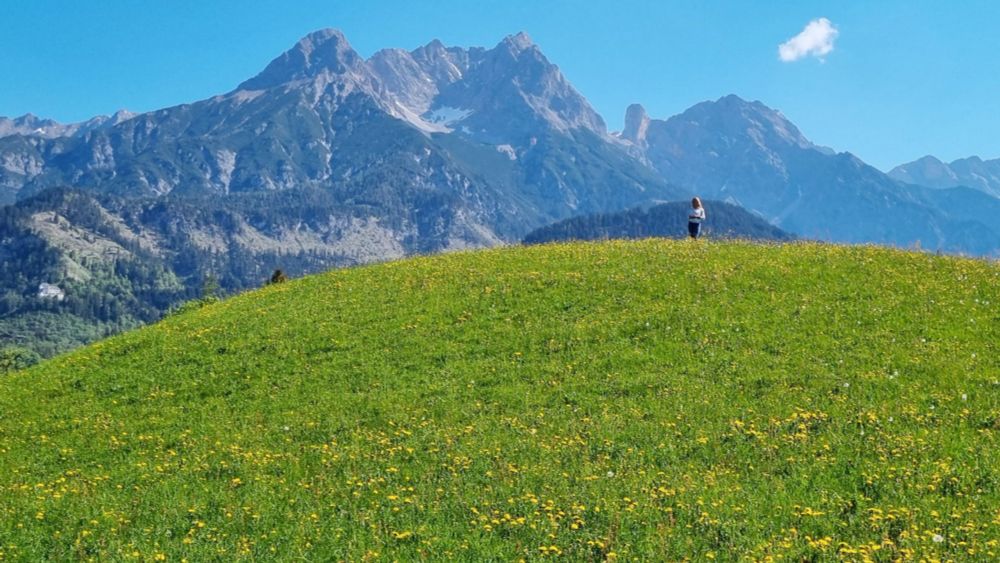
G'sunder Sommer in Österreich: Die Kraft der Natur
Wenn die Pflanzen in den Alpen blühen und die Wälder rauschen, wird Österreichs Natur zur besten Medizin. Wer Körper, Geist und Natur in Einklang bringen will, ist hier goldrichtig – besonders im Somm...
Excited to share that our recent study on nature exposure 🌲 and its impact on subjective and neural pain processing 🧠⚡ (rdcu.be/evMrv) was featured on Austrian national television (ORF). From minute 11 to 15 you can catch me and @clauslamm.bsky.social discussing the study design and key findings.
11.07.2025 06:18 — 👍 6 🔁 1 💬 0 📌 0
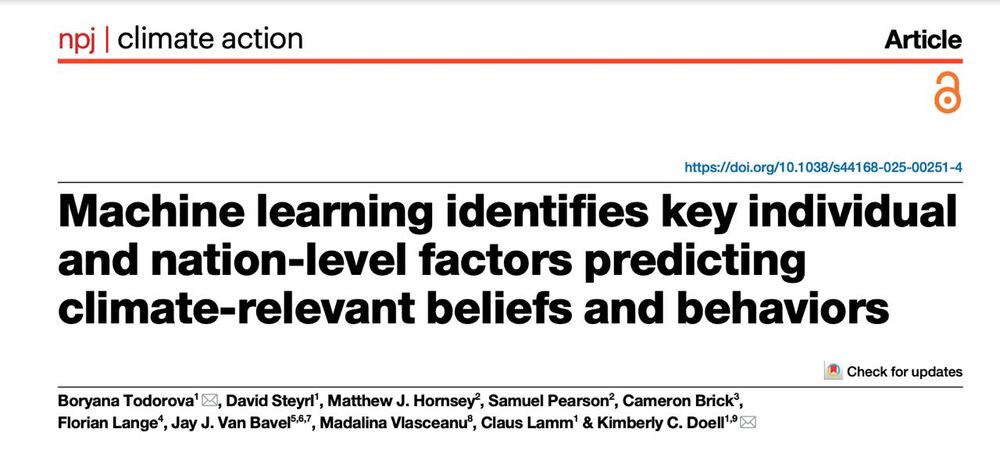
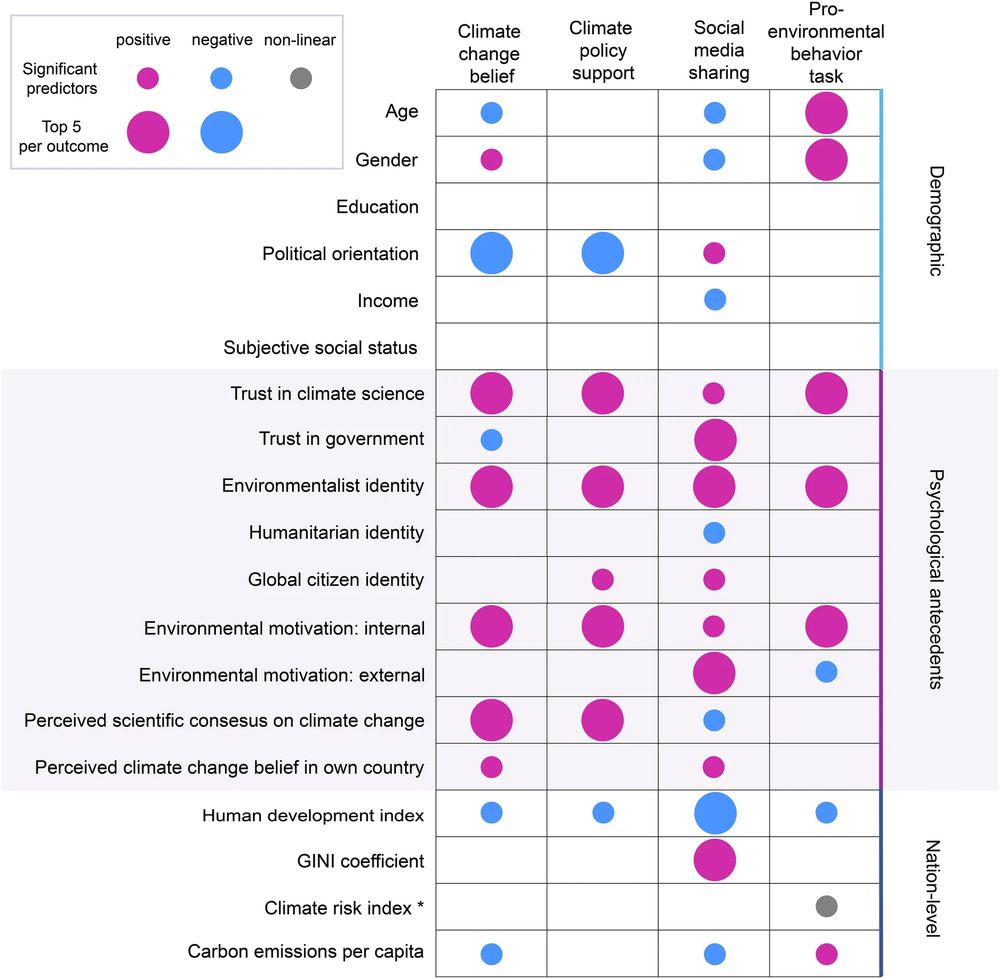
🌍 So excited to share our new paper “Machine learning identified key individual and nation-level factors predicting climate-relevant beliefs and behaviors”, just out in npj Climate Action!
🔗 Fully Open Access: rdcu.be/ele9s 1/
08.05.2025 18:22 — 👍 24 🔁 8 💬 2 📌 1
3y_PhDposition_univie_ScanUnit.pdf
🚨 Come work with us!
3-year fully funded PhD position in Social and Cognitive Neuroscience @univie.ac.at @clauslamm.bsky.social to join our project investigating prosocial behavior under uncertainty.
More info: shorturl.at/1fnb2
Please share widely 🔁
16.04.2025 10:55 — 👍 30 🔁 38 💬 1 📌 5
My talented colleague and friend @todorova.bsky.social just published a paper I had the pleasure of contributing to. We explore how climate action and brain health are deeply linked. Climate action can benefit our brains, and our brains shape how we act. Caring for the planet = caring for ourselves.
10.04.2025 07:35 — 👍 4 🔁 1 💬 0 📌 0
There is also some evidence suggesting nature may help with chronic pain as well: 10.1002/ejp.4727, 10.1016/j.pmn.2023.06.014, 10.3389/fbuil.2019.00142. I'm curious to see how our findings translate to chronic pain and am glad to hear nature has been helpful for you in pain management so far.
13.03.2025 19:31 — 👍 3 🔁 0 💬 0 📌 0
Big thanks to @clauslamm.bsky.social, Mat White, Lukas Lengersdorff, @lei-zhang.bsky.social, Alex Smalley and Simone Kühn, the reviewers/editors @naturecomms.bsky.social and @fwf-at.bsky.social for making this project possible. Follow me for more research on how nature impacts aversive experiences.
13.03.2025 10:11 — 👍 7 🔁 0 💬 0 📌 0
Nature isn’t just relaxing – it can actively reduce pain, both on a subjective and a neural level. Thus, nature-based interventions may offer a promising way to complement pain management strategies, even when using virtual instead of real-world nature. 5/6
13.03.2025 10:11 — 👍 7 🔁 0 💬 1 📌 0
The analgesic effect wasn’t just due to pitting nature against aversive or unmatched comparators. Consistent with our neural findings, which point to attention-based mechanisms rather than belief-driven effects, nature may effectively shift attention away from pain and towards our surroundings. 4/6
13.03.2025 10:11 — 👍 4 🔁 0 💬 1 📌 0
In line with past research (upcoming meta-analysis soon), nature was linked to reduced self-reported pain. Addressing limitations of prior studies, we compared virtual nature to a matched urban and an additional indoor scene – both associated with higher subjective and neural pain responses. 3/6
13.03.2025 10:11 — 👍 3 🔁 0 💬 1 📌 0
Using fMRI, we show that watching virtual nature reduced activation in a highly sensitive neural pain marker (NPS) and several key brain regions (thalamus, S2, pINS). Contrary to typical placebo research findings, nature acted directly on sensory, and not emotional/motivational, aspects of pain. 2/6
13.03.2025 10:11 — 👍 4 🔁 0 💬 1 📌 0
If possible, I would be happy to be included in the starter pack. I have a focus on environmental neuroscience and research the influence of nature on the processing of aversive experiences. I would be happy to become part of the community 😃
05.02.2025 08:22 — 👍 2 🔁 0 💬 0 📌 0
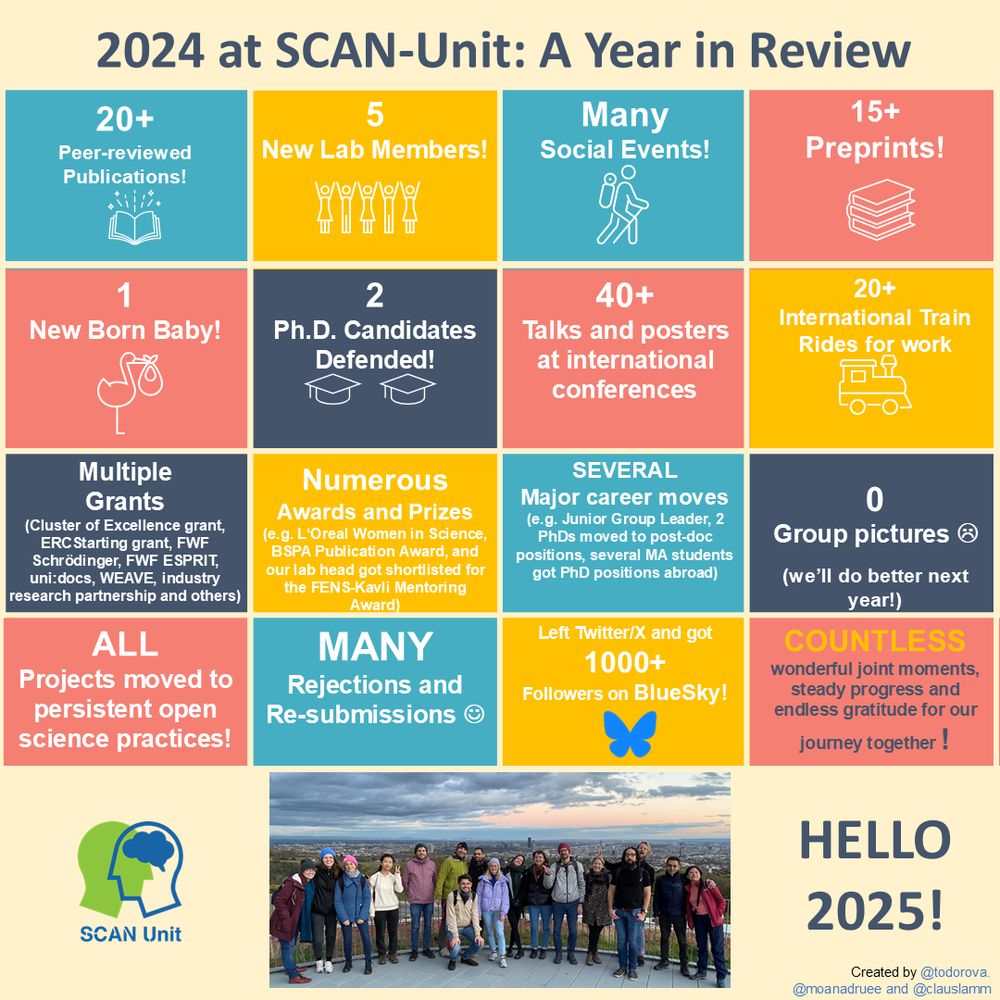
We are a bit late for this, but happy new year from the SCAN unit! 🎈
We are thankful for the productive and joyful times together and looking forward to another year of exciting research! 🤩
Here is our 2024 in review 👇
15.01.2025 14:09 — 👍 18 🔁 7 💬 0 📌 2
Somehow the link doesn’t work. It says the session has expired 🧐
14.12.2024 13:55 — 👍 2 🔁 0 💬 1 📌 0
Sentientism, food policy for desired/anticipated consumption patterns, plant-based food for climate, consumption behaviour, history and reporting of global goals, framing.
PhD researcher; #VR nature for #ChronicLowBackPain @Plymuni • #EnvironmentalPsychology • #DeepEcology • Writing • Literature • Woodwork • Beer • Views = own
CIHR Postdoc Fellow, Baycrest ✦ Stress, Dementia Risk Reduction, Biobehavioural Determinants of Brain Health & Aging ✦ 🧠🧘🏻♀️🥑🌿☕️ 🐶✦ She/Her
Psychology researcher, studies how well-being and health change as we grow older.
Behavior change at scale, decision-making, meta-science, inequality, and a 'little bit' of happiness. Fulbright Alumn at Harvard & Columbia. Currently leading the Behavioral Science Center in Budapest.
Interested in how & what the brain computes. Professor in Neuroscience & Statistics UC Berkeley
Brain scientist asking: How do we spend metabolic energy on processing information?
https://valentinriedl.de/
| Professor for multiscale neuroimaging @FAU
| NeuroEnergetics-lab @TUM
| Award-winning documentary LOST IN FACE about Carlotta and her brain
PhD student at Charité Berlin: computational neuroscience
sensory processing, oscillations, OPM-MEG
https://www.researchgate.net/profile/Johanna-Prugger
🏳️🌈
Natural Language Processing in Behavioral Science
Postdoctoral Researcher @unileipzig.bsky.social
Personnel Selection & Assessment Technology at magnolia psychometrics https://www.magnolia-psychometrics.com/
Professor of Psychology at Cardiff University Centre for Human Developmental Science / Teaching research methods / Researching how environments influence cognition communication & parenting
👨🔬 Scientist | Founder | Author
🏥 Health Tech🍴Better Protein
🏆 40 Under 40 in Science
🥇 Innovation of the Year
📍 University of Cambridge
🎯 On a mission to provide 1M free treatments in 2026
🔗 DrChrisMacdonald.com
Associate professor at Oslo New University College. Dungeon Master. Website: http://pedermisager.netlify.app
PhD student @ bingellab | Germany | pain, empathy & placebo/nocebo effects
Everyone knows that dogs are amazing. I think that dogs' brains are also fascinating! 🐶 💕 🧠
Having a marvelous time studying dogs' brains with fMRI at SCAN Unit 😊
✨Shimmering in enchanting Vienna ✨
We study the neural basis of human social interaction.
🔗 https://www.soz.psy.unibe.ch/
Postdoc | Environmental Psychology 🌱@ University of Konstanz & Seeburg University
Researching energy behavior change | social identity | behavioral public policy | climate change mitigation & adaptation
Referentin Arbeiterkammer Oberösterreich. Regional- und Kommunalpolitik, Raumplanung, Verteilungsgerechtigkeit. Hier privat.
PhD candidate; empathy research; social neuroscience
Assistant professor at @univie.ac.at @cemess.bsky.social & Faculty of Psychology • Gut microbiome-brain interactions • Neural plasticity & memory • Aging & dementia • Neuroimaging • https://www.isabellawagner.com





